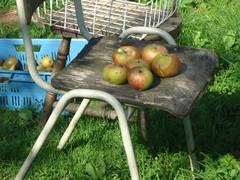Case studies Belgium
Urban gardening and socio-political commitment in mid-cities. The case of Ghent
The research is aimed at exploring the social and political motivations supporting different kinds of urban gardening and their planning implications in mid-sized cities, with particularly referring to some representative cases in the city of Ghent.
By moving from a preliminary theoretical and geographical mapping of the existing urban gardening projects in Ghent, the research will focuses on two representative cases in order to explore the socio-political motivations, goals, commitments and values they build upon. Specifically the research objectives include:
- mapping and clustering the principal socio-political concerns underlying the planning and planting initiatives performed by urban gardeners;
- analysis of the coherence between theoretical aims, motivations, practices and means in gardening initiatives;
- outline of the principal socio-political impacts of urban gardening initiatives on official urban planning defined by administrations.
The research activity will allow the investigator to explore the connection between gardening practices, socio-political motivations, and the (actual and potential) impacts in terms of participatory urban planning in Ghent.
The qualitative data-collection process will be realised by adopting a rapid appraisal approach, which draws on multiple evaluation methods and techniques to quickly, yet systematically, collect data (through the use of digital recording devices for interviews, videotaping and photography) when time in the field is limited. The selected rapid appraisal methodologies include:
- Group discussion, involving a limited number of participants who are knowledgeable about a given topic and are comfortable enough with one another to freely discuss the issue introduced by the investigator;
- Transect walks, in which the investigator and key informants walk and discuss together the topic with referring to the surroundings;
- Direct observation conducted by the investigator in order to record the presence of relevant elements in the physical context or on going activities, processes;
- Collection of secondary data and relevant scientific and grey literature .
The data collection process is aimed at providing information on the selected urban gardening projects and their motivations including:
- Projects history, relevant actors, goals and achievement;
- Context analysis, including spatial representation;
- Working philosophy, motivations (individual and collective), values and inspirations ;
- Working methodology (particularly participatory planning processes entailed);
- Networking strategies and extra-local connections;
- Interactions (lobbying, consultancy, campaigning...) with citizens, administrations, business or relevant others social actors.
The results are intended to contribute to the understanding of the material politics of urban gardening in Gent and the general Belgium context by focusing on the socio-political motivations and their impact in term of urban gardening.
Allotment gardens and urban agriculture in Belgium
The project aims at identifying different types of allotment gardens in Belgium and to investigate the the role of urban design in developing allotment gardens into a new kind of urban public spaces. Specific goals are:
- to analyse the social, economical ad administrative conditions in which they are developed.
- to identify a number of urban design questions.
- to frame allotment gardens in a broader question of the role of urban agriculture at a regional level.

